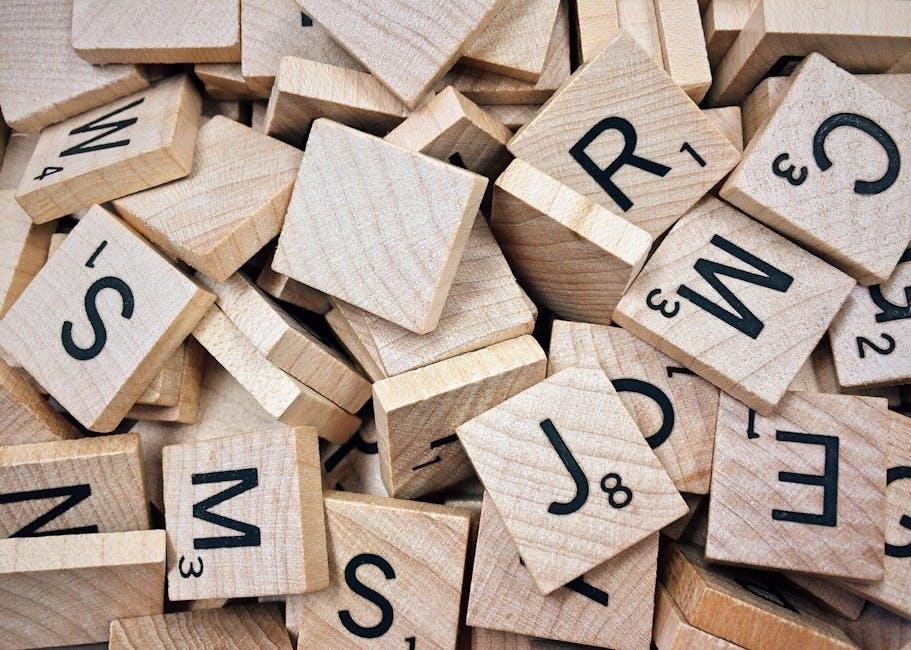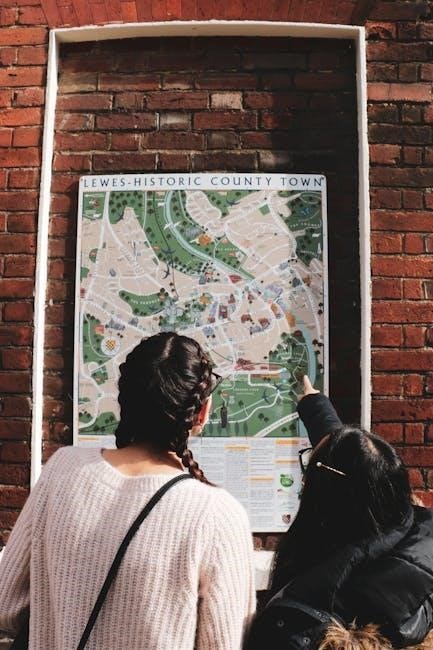hennepin county recycling guide
Welcome to the Hennepin County Recycling Guide! Recycling is vital for protecting the environment, conserving resources, and reducing landfill waste. Hennepin County achieves a 49% recycling rate, making it a leader in sustainability efforts. This guide provides detailed information on what can be recycled, proper disposal methods, and community initiatives to help residents and businesses participate effectively. By following these guidelines, we can collectively contribute to a greener future.
Importance of Recycling in Hennepin County
Recycling is crucial for Hennepin County’s environmental sustainability and resource conservation. It reduces landfill waste, decreases greenhouse gas emissions, and preserves natural resources. By recycling, residents help lower energy consumption and protect ecosystems. The county’s efforts to increase recycling rates aim to create a healthier environment for future generations. Community participation is essential to achieving these goals, making recycling a shared responsibility and a vital step toward a sustainable future.
County Achievements and Recycling Rate
Hennepin County has made significant strides in recycling, achieving a 49% recycling rate in recent years. This progress reflects the community’s commitment to sustainability. The county has successfully diverted over 117,000 tons of recyclable materials from landfills, including metals, plastics, and organics. These efforts have contributed to reducing waste and promoting eco-friendly practices. Continuous improvements in recycling programs aim to increase participation and further elevate the county’s environmental performance, ensuring a sustainable future for all residents.
Benefits of Recycling
Recycling in Hennepin County offers numerous environmental and community benefits. It reduces landfill waste, conserves natural resources, and decreases greenhouse gas emissions. By recycling, residents help protect the environment and promote sustainability. Additionally, recycling supports local jobs and strengthens the economy. The county’s efforts to increase recycling rates have positively impacted resource conservation and waste reduction. Community participation in recycling programs fosters a shared commitment to preserving Hennepin County’s natural resources for future generations.

What Can Be Recycled
Hennepin County accepts plastics, paper, glass, and metal for recycling. Items like bottles, cans, cardboard, and certain containers are recyclable. Proper sorting is essential for effective recycling.
Plastics: Bottles, Jugs, and Containers
Hennepin County accepts plastics numbered 1, 2, and 5 for recycling. This includes water bottles, milk jugs, detergent containers, and other similar items. Ensure plastics are clean and free of food residue. Remove lids and labels before recycling. Plastic bags and film are not accepted in curbside recycling but can be dropped off at designated locations. Check the Green Disposal Guide for detailed instructions on preparing plastics for recycling.
Paper and Cardboard: Accepted Items
Hennepin County accepts newspaper, cardboard boxes, and paperboard (e;g., cereal boxes) for recycling. Mixed paper, including junk mail, office paper, and shredded paper (bagged), is also accepted. Flatten cardboard boxes to save space in your recycling cart. Paper bags and clear packaging materials are now recyclable in Hennepin County. Ensure all items are clean and free of food residue. Refer to the Green Disposal Guide for detailed preparation guidelines and a full list of accepted paper and cardboard items.
Glass: Bottles and Jars
Glass bottles and jars are widely accepted in Hennepin County’s recycling program. Ensure containers are empty and clean, with lids and labels removed. Clear glass packaging materials are now recyclable. Avoid including broken glass, windows, or mirrors, as these are not accepted; Place items loose in your recycling cart or bin. For more details, consult the Green Disposal Guide. Proper recycling of glass helps reduce landfill waste and supports sustainable practices. Make sure to rinse containers thoroughly before recycling.
Metal: Cans and Foil
Metal cans, including aluminum and steel, are recyclable in Hennepin County. This includes soda cans, food cans, and aluminum foil. Ensure items are clean and free of food residue. Remove lids and labels if possible. Do not include scrap metal or wire. Place metals loose in your recycling cart—never bagged. Foil must be clean and flattened. Recycling metals helps conserve resources and reduces landfill waste. For details, refer to the Green Disposal Guide. Proper preparation ensures efficient processing and contributes to a sustainable environment.
Organics Recycling
Organics recycling in Hennepin County helps divert food scraps, yard waste, and other organic materials from landfills. Proper practices ensure these materials are composted effectively, reducing waste and creating nutrient-rich soil. Residents can participate through curbside programs or drop-off locations. Following guidelines ensures successful composting and supports a sustainable environment for future generations.
Food Scraps and Kitchen Waste
Hennepin County accepts food scraps and kitchen waste for organics recycling, including fruit and vegetable peels, bread, grains, and eggshells. Avoid adding meat, dairy, oils, and fats, as these can disrupt the composting process. Residents should place these materials in designated organics bins, ensuring they are clean and free of plastic bags. Participation helps reduce landfill waste and creates nutrient-rich compost for local gardens and landscapes, promoting a sustainable environment. Proper preparation is key to successful organics recycling.
Yard Trimmings and Garden Waste
Hennepin County accepts yard trimmings and garden waste, including leaves, branches, and grass clippings, for organics recycling. These materials are composted into nutrient-rich soil amendments. Residents can dispose of these items through curbside organics collection or at drop-off facilities. Avoid including weeds with seeds, diseased plants, or invasive species, as they can harm gardens. Properly prepared yard waste helps reduce landfill use and supports local gardening efforts. Participation in this program contributes to a healthier environment and sustainable community practices.
Composting Best Practices
Proper separation of organics is key to successful composting. Use BPI-certified compostable bags or reusable containers for food scraps and yard waste. Shredding larger materials like branches improves decomposition. Mix “green” materials (food scraps, grass clippings) with “brown” materials (dried leaves, twigs) for balanced compost. Avoid adding plastic, metals, or synthetic fabrics. Regularly aerate piles and maintain moisture for optimal results. Hennepin County’s composting programs turn organic waste into nutrient-rich soil, benefiting local gardens and reducing landfill use. Follow guidelines to ensure contamination-free composting and support sustainable practices.
Special Materials
Special materials like textiles, electronics, and hazardous waste require unique disposal methods. Proper handling ensures environmental protection and public health, promoting sustainable practices in Hennepin County.
Textiles: Clothing and Fabrics
Textiles like clothing and fabrics can be recycled or donated. Hennepin County offers drop-off facilities for unusable textiles, ensuring they don’t end up in landfills. Residents are encouraged to donate reusable items to local charities or thrift stores. For items that are worn out, the county’s facilities accept them for recycling into new products such as rags or insulation. Proper textile recycling helps reduce waste and supports sustainable practices.
Electronics: E-Waste Disposal
Electronic waste, or e-waste, requires special handling due to hazardous materials like lead and mercury. Hennepin County accepts electronics at designated drop-off facilities, including computers, phones, televisions, and small appliances. These items are recycled responsibly to recover valuable materials and prevent environmental harm. Residents can use the Green Disposal Guide to find locations and view a full list of accepted items. Proper e-waste disposal supports sustainability and protects public health by ensuring toxic materials are managed safely.
Hazardous Waste: Chemicals and Batteries
Hazardous waste, including batteries, pesticides, and chemicals, requires special disposal to prevent environmental harm. Hennepin County provides drop-off facilities for these items, ensuring they are managed safely. Residents should never place hazardous waste in regular recycling or trash. Check the Green Disposal Guide for specific instructions and locations. Proper disposal helps protect waterways and soil from contamination. Participating in these programs is essential for maintaining a healthy environment and reducing risks to public health.

Disposal Guidelines
Proper disposal of materials like plastic bags and clear packaging is essential to avoid contamination. Follow guidelines to ensure items are handled correctly, supporting Hennepin County’s sustainability goals. Refer to the Green Disposal Guide for specific instructions on disposing of various items.
Plastic Bags and Film
Plastic bags and film cannot be recycled in curbside carts as they cause machinery issues. Residents should dispose of them in trash or drop-off locations. Many retailers accept plastic bags for recycling. Ensure items like plastic wrap and packaging film are kept separate and not mixed with other recyclables. Proper disposal helps maintain efficient recycling processes and reduces contamination; Always check local guidelines for specific instructions on handling plastic bags and film in Hennepin County. This ensures materials are managed correctly and sustainably.
Clear Packaging and Materials
Clear packaging and materials, such as plastic egg cartons and detergent bottles, are recyclable in Hennepin County. These items should be clean, dry, and free of residue. Avoid mixing them with non-recyclable plastics or contaminants. Clear packaging is accepted in curbside recycling carts, but ensure they meet size and shape guidelines. Always check the Hennepin County Recycling Guide for specific instructions to ensure proper processing. Proper recycling of clear materials helps conserve resources and supports a sustainable future.

Drop-off Facilities
Hennepin County provides convenient drop-off facilities for recycling, organics, and hazardous waste. These locations accept a variety of materials, including textiles, electronics, and bulk items. Residents can utilize these facilities to ensure proper disposal of items not collected curbside. Check the county’s guide for specific accepted items, location details, and operating hours to make sustainable disposal easy and efficient for all community members.
Locations and Operating Hours
Hennepin County operates two main drop-off facilities for recycling and hazardous waste. The South Hennepin Recycling and Disposal Facility, located at 1400 West 96th Street in Bloomington, and the Brooklyn Park location at 7301 36th Avenue North, serve residents countywide. Both facilities accept a wide range of materials, including electronics, appliances, and household hazardous waste. Operating hours are typically Monday through Saturday, 8:00 AM to 4:00 PM, but may vary on holidays. Visit the Hennepin County website for detailed hours and accepted items to plan your visit effectively.
Accepted Items and Restrictions
Hennepin County drop-off facilities accept a variety of materials, including plastics, glass, metal, organics, textiles, electronics, and hazardous waste. However, certain restrictions apply. Plastic bags, for instance, are not accepted in recycling carts but can be dropped off at designated locations. Electronics and hazardous waste, such as batteries and chemicals, require special handling. Organic materials must be separated from recyclables and trash. Visit the Hennepin County Green Disposal Guide for a detailed list of accepted items and preparation guidelines to ensure proper disposal and recycling practices.
Collection Tips
Place accepted items loose in your recycling cart, avoiding bags. Ensure cart lids are closed and items are within size and weight limits. Set carts at the curb by 6:30 a.m. on collection day for efficient pickup.
Cart Preparation: Loose Items and Sizes
Place accepted items loose in your recycling cart to ensure proper sorting. Avoid bagging items, as this can disrupt processing. Cardboard boxes and bundles must be no larger than 3 feet x 3 feet and weigh less than 40 pounds. Overfilled carts or oversized items may not be collected. Ensure cart lids are closed to prevent materials from spilling. Items exceeding size or weight limits should be dropped off at designated facilities. Proper cart preparation helps maintain efficient recycling collection and processing.
Collection Schedules and Placement
Place your recycling cart at the curb or end of your driveway by 6:30 a.m. on collection day. Ensure the cart is accessible, away from obstacles, and the lid is closed. Plastic bags and film should not be included in curbside recycling. Check your local schedule for collection dates, as they may vary by location. Proper cart placement and adherence to guidelines help ensure efficient collection and support Hennepin County’s recycling goals. Visit the Hennepin County Recycling Guide for detailed schedules and placement instructions.

Community Initiatives
Hennepin County promotes sustainability through business recognition programs, educational workshops, and grants for schools. These initiatives encourage participation and innovation in recycling and waste reduction efforts countywide.
Business Recognition Programs
Hennepin County recognizes businesses for their outstanding recycling and sustainability efforts through annual programs. In 2014, 40 businesses were honored for their initiatives, showcasing their commitment to reducing waste. These programs aim to encourage others to adopt eco-friendly practices, fostering a culture of environmental responsibility. By highlighting successful strategies, the county inspires innovation and collaboration among local organizations, contributing to a greener and more sustainable community for all residents.
Community Education and Workshops
Hennepin County offers community education and workshops to empower residents with knowledge on recycling best practices. These programs cover topics like organics recycling, waste reduction, and proper disposal methods. Residents receive pamphlets in multiple languages and reusable tote bags with recycling guides. Workshops are designed to engage participants and encourage sustainable habits. By providing accessible resources, the county aims to make recycling easier and more effective, fostering a culture of environmental stewardship and community involvement in achieving sustainability goals.

Future Directions
Hennepin County is expanding recycling initiatives through grants for schools and organizations, new recycling programs, and improved waste reduction efforts to enhance sustainability and community engagement.
Grants for Schools and Organizations
Hennepin County offers grants to schools and organizations to support innovative recycling and sustainability projects. These funds enable educational programs, waste reduction initiatives, and community engagement activities. By empowering local groups, the county fosters a culture of environmental stewardship and encourages the development of new recycling strategies. These grants are part of broader efforts to achieve higher recycling rates and promote sustainable practices throughout the community, ensuring a greener future for all residents.
New and Emerging Recycling Programs
Hennepin County continuously explores innovative recycling initiatives to enhance sustainability efforts. Recent programs include expanded organics recycling, textile collection, and electronics disposal options. The county also introduced the Green Disposal Guide, a user-friendly tool to help residents navigate recycling and disposal processes. These emerging programs aim to increase recycling rates, reduce landfill waste, and engage the community in environmental stewardship. By leveraging new technologies and community partnerships, Hennepin County remains at the forefront of waste management and recycling innovation.
Recycling is crucial for Hennepin County’s environmental health. By participating, residents help conserve resources, reduce landfill waste, and promote sustainability. Use the Green Disposal Guide for guidance and join the effort to create a greener future for everyone.
Hennepin County’s recycling efforts have made significant strides, with a 49% recycling rate and growing community engagement. Residents are encouraged to participate by properly sorting recyclables, utilizing organics collection, and exploring drop-off facilities. The Green Disposal Guide offers easy-to-follow instructions for disposing of items sustainably. By taking small steps, such as recycling plastics, paper, and glass, and avoiding plastic bags, everyone can contribute to reducing waste and creating a healthier environment. Together, we can build a greener future for Hennepin County.

Resources
Explore Hennepin County’s recycling resources:
- Hennepin County Recycling Guide
- Green Disposal Guide
for detailed instructions and tools to help you recycle effectively.
The Hennepin County Recycling Guide is a comprehensive resource for residents and businesses, offering detailed information on recyclable materials, collection guidelines, and drop-off locations. It covers plastics, glass, paper, metal, and organics, ensuring clarity on acceptable items. The guide also provides tips for proper cart preparation and collection schedules. Available online, it includes interactive tools like the Green Disposal Guide to help residents make informed decisions. Regular updates reflect new programs and materials, making it an essential tool for sustainable practices in the county.
Green Disposal Guide and Online Tools
Hennepin County’s Green Disposal Guide and online tools empower residents to make eco-friendly choices. The guide offers a user-friendly search feature, allowing users to input items and find disposal methods. Additionally, a smartphone app provides on-the-go access to recycling information. These tools simplify the process of determining what can be recycled, composted, or properly disposed of. They also include drop-off locations and tips for reducing waste. By leveraging technology, the county makes sustainable living accessible and convenient for all residents.

